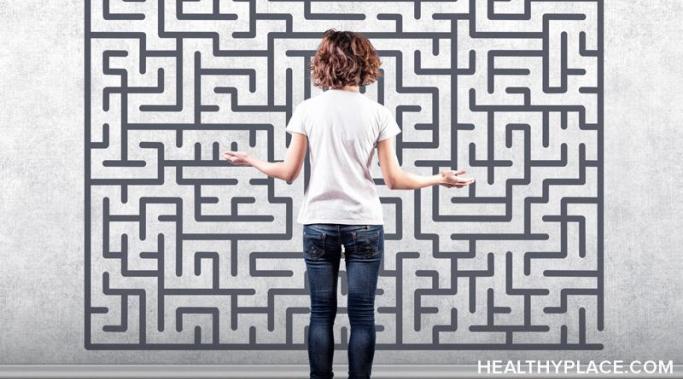Yoga and mental illness recovery can go hand in hand -- it is an incredible and powerful tool for recovery. The resources to overcome and aid mental illness are abundant. What works for one person is not necessarily going to work for another. Keeping an open mind and trying different things is extremely important while on this journey. I believe that a combination of a variety of different mental health tools is one of the best approaches. Yoga is one of the tools I use on a regular basis, and yoga can help you with depression, anxiety and stress, too. Yoga can help mental illness.
Recovering from Mental Illness
Mental health conversations are important at every age and stage of development. As a parent, there’s a lot I want to tell my young daughter about mental health, so hopefully one day she will be a confident woman with a healthy life. She will grow up with me speaking openly about my mental illness as I always have. I hope in return she will feel comfortable talking about mental health as well. I plan on having mental health conversations early and keep the discussion going throughout her childhood. Here are three points I really want to get across.
The motivation for recovery from mental illness depends on the individual, so it is important to find reasons in your life to stay motivated. Recovery can be a long and bumpy road, but those reasons will give your journey purpose. Setting goals can give you something to look forward to and keep your life moving forward. Here are some of the reasons I stay motivated in recovery from mental illness.
Unhealthy behavior patterns sneak up on all of us, especially if you have a mental illness. By using awareness and reflection to uncover your unhealthy behavior patterns, and then using your patterns to recover from mental illness, you'll amplify your recovery process. If you are not aware of your unhealthy behavior patterns and tendencies, if you are not aware of what triggers you to feel depressed, anxious or mentally ill in any way, then there is no way to recover from it.
Mental illness and stress do not mix well. There have been many times in my recovery when I've needed a break. Whether it was a medical leave from school or a few days off of work, I've always found giving myself a break helpful. I would usually return to work or school a rested, happier, and more productive person. Here are four signs that have shown me that I've needed a break because of mental illness and stress.
Your identity with mental illness can hurt your recovery. Many people identify with suffering from a mental illness and it becomes a part of who they are. This identity with their mental illness can hurt their recovery as they become so attached to the mental health label they do not know who they are without it. Being depressed, anxious, or mentally unwell in any capacity is how they know and see themselves. They cannot fully recover because they are carrying this part of themselves so close, they cannot or don’t know how to let it go.
Mental illness struggles are often life-long, so I think it’s interesting to look back at different stages in my life and what role they played in my mental health. I have had mental illness symptoms since childhood, but they became a lot more visible when I was a teenager. My mental illness struggles are chronic, but I am in recovery now.
Recovery from mental illness is possible, but it can be surprisingly more difficult than expected. Many may believe that the new year is an ideal time to recover from mental illness as it can be a time of reflection, goal setting, excitement and new beginnings, but it can also be a time of pressure to change, share what is going to be new and believe things you may not necessarily agree with. We hear, "What is your New Year’s resolution?" hundreds of times during the months of December and January and we may think it is going to motivate us to overcome our mental illness. But a time of year doesn’t determine if recovery from a mental illness is possible, a decision does.
Schizoaffective disorder recovery helped me gain confidence, but first, recovery took away a gift I thought made me special. Before my diagnosis in my early 20s, when I was really struggling, I thought that I was a medium and could communicate with spirits. I had both auditory and visual hallucinations that I thought were ghosts. Letting go of the belief I was psychic in early schizoaffective disorder recovery hurt my confidence.
Life after an eating disorder, and treatment for both bulimia and schizoaffective disorder, is much better. I often write about my experience with schizoaffective disorder at HealthyPlace, but it was really my struggle with bulimia that led me to seek help in the first place. I struggled with my eating disorder for many years, and eating disorder recovery was rough until I was also treated for schizoaffective disorder. In my case, the two were definitely related. When my mood and psychotic symptoms were reduced with medication, I finally felt strong enough to really get a handle on my eating disorder. I spent several weeks at an eating disorder treatment center in my early 20s. I truly believe it saved my life, and during my life after an eating disorder, I haven’t looked back once.









